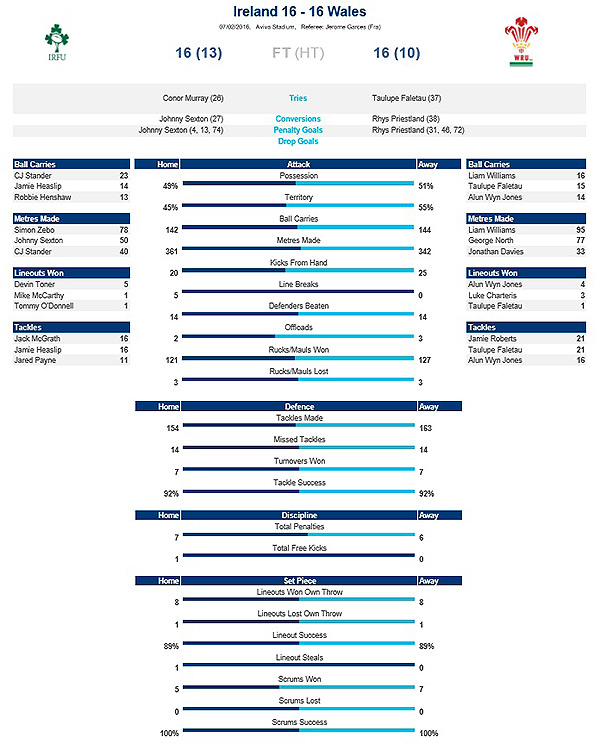Phases: Are they just failures?
Television delights in putting up the number of phases a team has 'achieved' in succession. Is this sort of succession a success?
The commentators get excited as well at the number of phases and say things like 'They are being patient', 'They are showing composure', 'You have to earn the right to go wide', canonising cliché.
Doctor Danie Craven had a different view. Phases were not a part of his vocabulary but he did preach that every ruck was a failure.
Part of his greatness was to uncomplicate the game. To him the game was about attack and defence. Win either aspect and you are on the way to winning the game.
He saw a ruck as a failure of attack, a victory for defence over attack. Imagine what he would say about phases.
But, lest I appear biased, I thought I should produce some facts and used last Sunday's match between Ireland and Wales in Dublin, a tight match that ended 16-all. It was not a one-sided match, but one which both sides wanted to win. Wanting to win, they would have taken the best route to scoring points, and phases played a large part in the way they played.
I have taken long successions of phases and seen what came of them.
They started early in the match.
Inside the first five minutes Ireland went through 17 phases. They lost the ball but the referee penalised Wales and Jonny Sexton goaled a penalty.
It was the most successful of multiphased rugby in the match.
Wales then went through 16 phases and lost the ball.
Ireland went through 15 phases and were penalised.
All of this was in the first 11 minutes when players were fresh and mindful of their gameplan.
Just before half-time Ireland went through 11 phases and were penalised.
In the second half Wales went through 13 phases and then missed a drop at goal as it became clear that they were not going to score.
Wales next had the biggest phase of all – 27 phases – and then they lost the ball.
Just before the end when Ireland were revitalised and intent on breaking the deadlock, they went through 14 phases and then kicked the ball away.
That adds up to 113 phases which produces three points. No tries – just a penalty goal. Sterility?
Each side scored a try in the match, neither from phases.
Phases came into rugby vocabulary in the late 1960s, early 1970s. But then it was just second-phase rugby – not 27 phases.
A phases apparently is the play from tackle to tackle. So if I get the ball and pass it to a prop who is immediately dumped on the ground, that is a phase. That means that 27 phases may in fact be the same phase repeated 27 times in the mindless rugby that believes that taking a tackle is a much better plan than beating an opponent's attempted tackle. And so it is possible for a prop to get more passes from a scrumhalf than does his flyhalf.
It is mindless, boring rugby rewarded with excitement only in counting phases. There are no points to count and so we count phases.
In this match Ireland beat Wales by 57 phases to 56 but it did not affect the outcome of the match.
It may just be a good idea if we saw phases as defeats, if the scrumhalf normally passed to the flyhalf and we banned clichés like patience, composure and the right to go wide, and instead were hellbent on playing at speed, avoiding tackles and scoring tries.
Just a thought.
By Paul Dobson
@rugby365com










